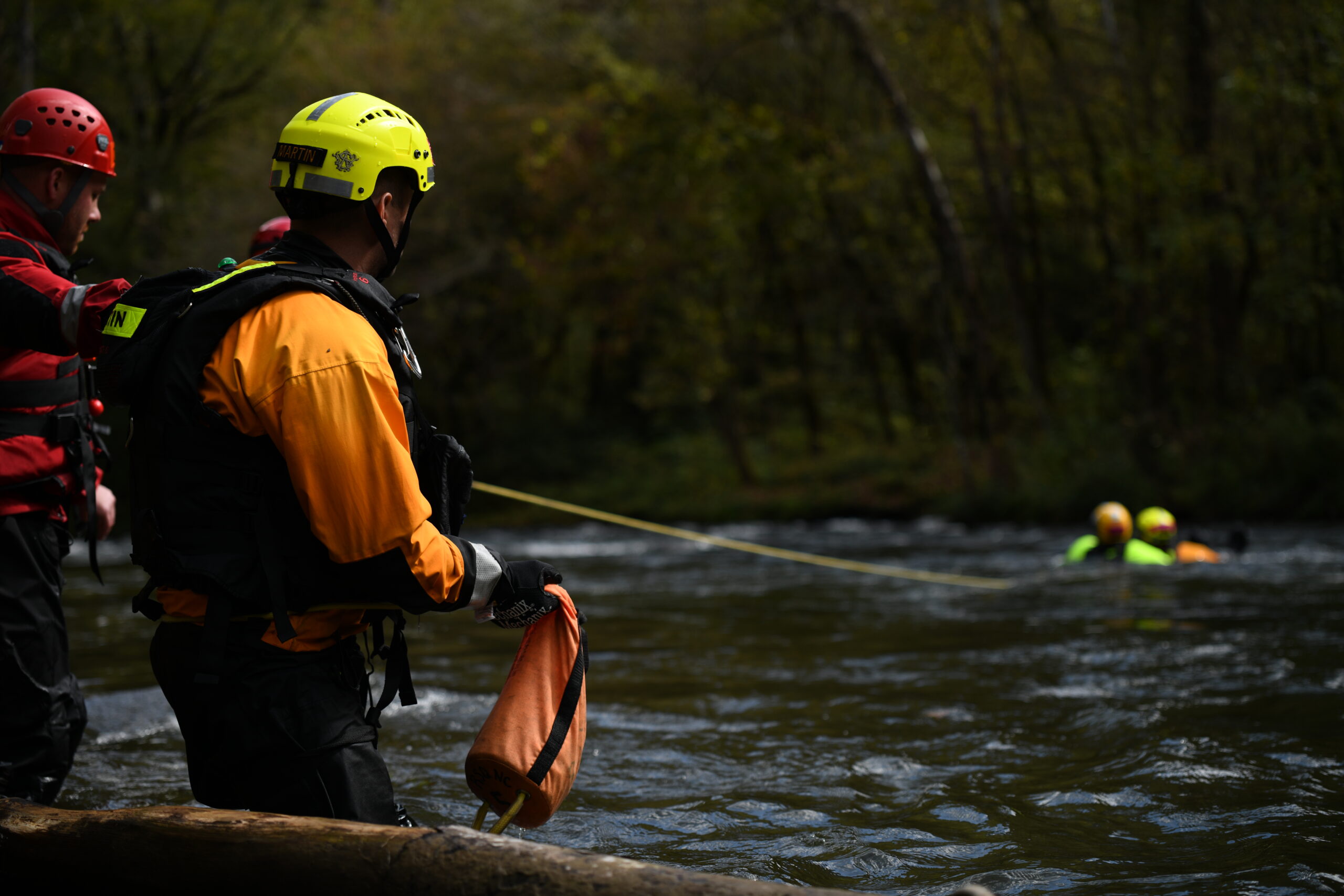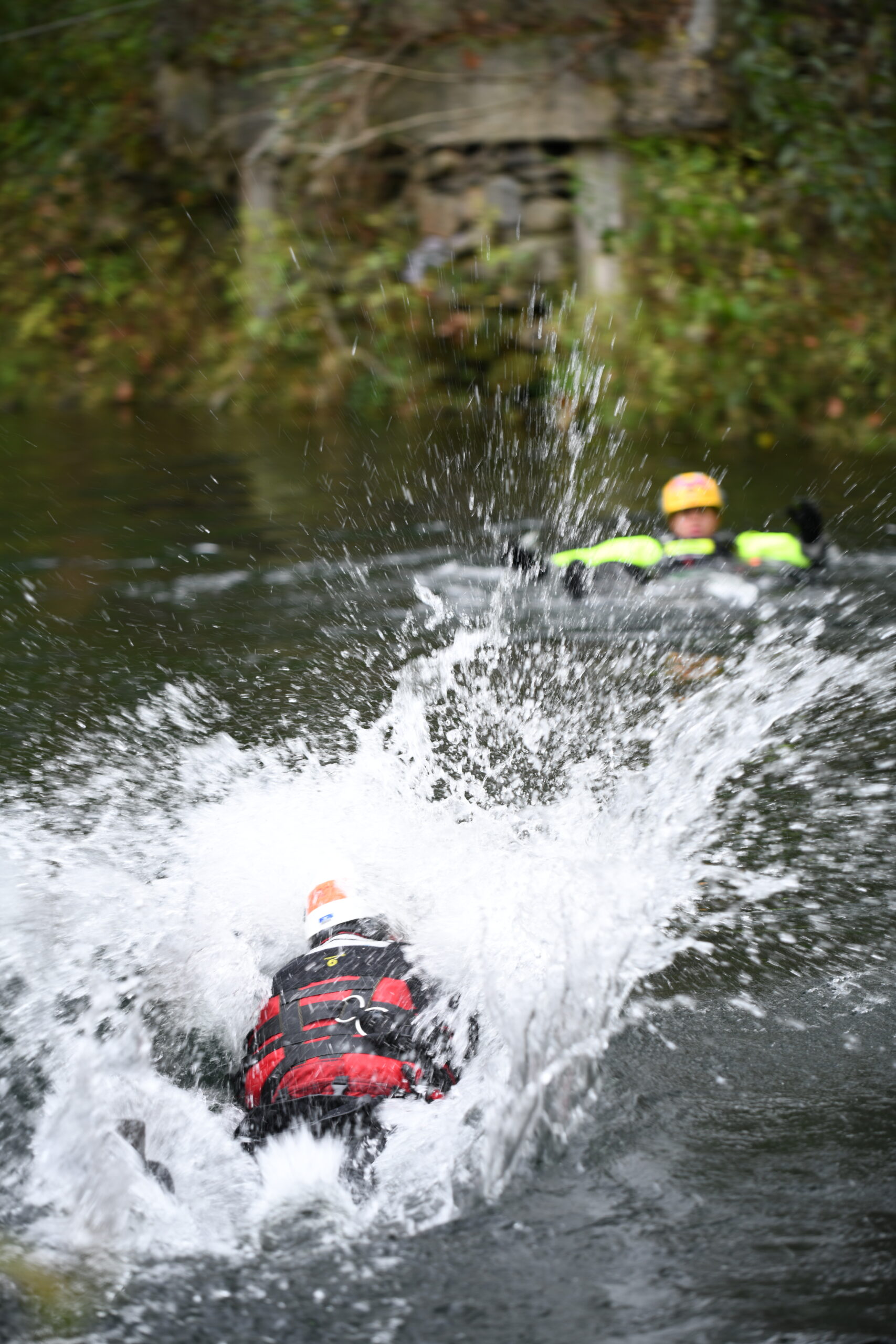Knightdale Fire Department
Wake Co., NC
TR Water Rescue Technician
Morbi leo sagittis placerat sem. Nisl tincidunt nulla fames nisl risus egestas.
Sponsored by: Wake Technical Community College
Classroom Portion Will Be Held at Knightdale Fire Department
Registration Is CLOSED
Class Details / Itinerary
Knightdale Fire Dept. 2023 TR Water Rescuer Proposed Schedule |
|||||
Course Name |
Location |
Date |
Times |
||
TR Water Rescue (Rescue Ops. Lecture) |
Knightdale Fire Dept. |
Monday, October 16, 2023 |
0800-1300 |
||
TR Water Rescue Surface Water Pool Practical Skills |
Knightdale Wellness Center |
Monday, October 16, 2023 |
1400-1800 |
||
TR Water Rescue (Rescue Ops. Lecture) |
Knightdale Fire Dept. |
Monday, October 16, 2023 |
1800-2100 |
||
TR Water Rescue (Rescue Techniques Lecture) |
Knightdale Fire Dept. |
Tuesday, October 17, 2023 |
0800-1200 |
||
TR Water Rescue (Rescue Techniques Lecture) |
Knightdale Fire Dept. |
Tuesday, October 17, 2023 |
1300-1800 |
||
TR Water Rescue (Transportation Lecture) |
Knightdale Fire Dept. |
Tuesday, October 17, 2023 |
1800-2100 |
||
TR Water Rescue (Transportation Lecture) |
Knightdale Fire Dept. |
Wednesday, October 18, 2023 |
0800-1200 |
||
TR Water Rescue Watercraft Practicals |
Area Lake |
Wednesday, October 18, 2023 |
1300-1800 |
||
TR Water Rescue Watercraft Practicals |
Area Lake |
Wednesday, October 18, 2023 |
1800-2100 |
||
TR Water Rescue Practicals |
Roanoke River |
Thursday, October 19, 2023 |
0800-1200 |
||
TR Water Rescue Practicals |
Roanoke River |
Thursday, October 20, 2023 |
1300-2000 |
||
TR Water Rescue Practicals |
Roanoke River |
Friday, October 20, 2023 |
0800-1200 |
||
TR Water Rescue Practicals (Test Date) |
Roanoke River |
Friday, October 20, 2023 |
1300-2000 |
||
Background:
The North Carolina Technical Rescuer Water Rescue series is comprised of four modules offered over a two-weekend series that enables the student to obtain the requirements needed to obtain full IFSAC certification for water rescue. (in addition to fulfilling the requirements for TR General and Rope Rescue). Completion of the TR General & TR Rope Technician is not required for attendance but strongly recommended as certification will not be awarded to the student until all requirements for TR Water rescue are fulfilled.
The OSFM TR Water Rescue series is a 48-hour series specifically designed to fulfill the NFPA 1006 Minimum Job performance requirements (JPR’s) for those agencies who have the responsibility of surface and swiftwater rescue responses.
This a general knowledge course with minimum skill performance. It is considered a general overview of all water rescue problems and does not provide enough practical time in swiftwater environments to be proficient for swiftwater rescue teams. It is strongly recommended Swiftwater Rescue Teams obtain additional training..
Upon successful completion of a skills assessment swim test, students will receive training in areas that include:
- Rescue Operations
- Equipment needs
- Site surveys
- Preplanning
- Rescue Techniques
- Rescue Swimming
- Self-Survival Techniques
- Air & Ground Transportation
- Boat-Based Rescues
- Water Rescue Craft Operations
- Strong Swimmer Rescues
- Managing Search Operations
This is a physically and mentally challenging course! Those students with phobias of swimming class I & II rapids, extremely cold water, or extensive health problems (heart, trauma, respiratory…) are discouraged from attending this course!
The Water Technical Rescuer candidate shall correctly demonstrate the ability to assume a correct swimming posture and swim for 100 yards and tread water for ten minutes in an aquatic environment both without and with floatation devices. This exercises a two-part exercise that demonstrates a candidate’s ability to swim and maintain their safety without the aid of any devices as well as demonstrate the difference in swimming with a device. Successful completion of these skills is necessary to complete this class.
Skills acquired within the course include:
- Rescuing and extricating an accident victim from the water.
- Safely swimming in swiftwater and maneuvering so as to negotiate river hazards and obstacles at various water levels.
- Handling small inflatable boats by paddle, or on tether.
- Utilizing climbing and technical rescue gear applicable to swiftwater rescue.
- Fording shallow and fast-moving water utilizing various techniques.
- Navigating deep, slow-moving and fast-moving water utilizing basic climbing gear, small boats, and combinations of the two.

Equipment
PLEASE ACQUIRE & TRY ON YOUR EQUIPMENT PRIOR TO COMING TO CLASS!!!!
Nothing is more miserable than having the wrong equipment or gear that doesn’t fit so make sure your PFD is snug, helmet fits comfortably, wetsuits are snug but not too restricting to breath. Drysuits should be somewhat loose and polypropylene should be warm to wear. The water temperature and ambient air temps fluctuate throughout this time of the season so …dress in layers! NO COTTON!!!!
You will need the following
- An approved USCG Type III or Type V personal flotation device (PFD)
- A rock climbing or water rescue vented helmet.
- Mask & Snorkel that will fit under your helmet.
- Drysuits or wetsuits (5 or 7mm or thicker) (Shorty or Farmer John, or Full Body) are encouraged (dependent on season & river temperatures)
- Synthetic Undergarment worn under thermal suits (Polypropylene or under-armor style Spandex material)
- Neoprene gloves for thermal protection
- River boots with neoprene protection are suggested or wool socks with old tennis shoes. “No Walmart surfer shoes”
- Snacks, Lunch, & water during class
- Clothing suitable for the diverse climate
- Change of clothes
- Swim trunks must have a drawstring…(No one wants to see your junk!!! The rapids are powerful and will take swim suits and loose footwear off!
- Water Bottle & High Carbohydrate snacks
In preparing for the class, the river temperatures may be very cold (35degress +) but air temps fluctuate this time of year so you will need thermal protection (wetsuit or drysuit) A full wetsuit works great too but no greater than 8mm thick. The rocks on the river can create some “external & internal” damage so here is some helpful hints regarding PPE…A wetsuit (shorty or farmer john style) is preferred. They usually run about $30+ at sporting good stores since the summer watersports season is almost over they may be marked down.
Meals:
Due to the travel between training locations and limited access to restaurants students will need to bring their meals and snacks and drinks with them on the river and lake training dates.
Please Plan To Arrive At Least 20 Minutes Before Class Time. Due To Logistical Demands, We Simply Cannot Afford Setup Or Travel Time To Impact Instructional Time.
Study Guides For Written Exam:
I strongly encourage each of you to download the instructor lesson plans below now and begin studying for the written exam. The entire written exam will be coming from these lesson plans so studying them will GREATLY help you pass the written exam. THERE WILL BE NO REVIEW FOR THIS CLASS!!
YOU MUST BRING NOTE TAKING MATERIALS, as well. The lecture will be on the DURING THE FIRST WEEKEND OF CLASS so be prepared to take notes!
Click the links below to download the PDF files directly from my website or from your OSFM 24 login.
- Rescue Operations
- Transportation; Air Operations
- Transportation; Watercraft Operations
- Rescue Techniques
- Victim Management; Strong Swimmer Rescue
- Victim Management; Waterbound Victim
Rope Rigging Skills:
This course involves rigging several boat on a highline practical skills. Participants must be well- versed in rigging the following:
- Basic Technical Rescuer KnotS
- Single & Multiple Anchor Systems (Load Distributing & Load Sharing)
- Simple Mechanical Advantages (2:1 & 3:1 In-line MAS)
- Prussik Hitches
- Webbing Hitches
Medical Clearance / Fit For Duty Statement:
The TR Water Rescue course is a very physically and psychologically strenuous course. There are many hazards & risks such as debris, biological hazards, animals, rocks, and chemicals in water, moving parts on boats, and other hydrologic features can pose the risk of serious injury, death, drowning, or near drownings by participating. Due to the extreme nature of the course, this will cause strenuous stress upon the body and may influence pre-existing medical conditions or cause new injuries or illnesses. WARNING: Students with less than average swimming abilities or significant medical problems are discouraged from attending our course due to the intensity of rapids, extreme environments, and stress placed upon the body. (Class II & III). Each participant will be required to be medically cleared prior to each practical skills session before being allowed to participate.
Each participant must meet the following medical criteria before being allowed to participate: NFPA 1584 recommends these vital signs for release Temperature:
Temperature <100.6 F Heart Rate: <100 bpm
Respiratory Rate: 12-20 per min.
Blood Pressure: <160 systolic and <100 diastolic
Pulse Oximetry: >94 percent.
In the event a participant does NOT meet this criterion they will be required to rest for a period of time and will be re-evaluated. If their vital signs do not improve they will NOT be permitted to continue participating in practical skills.
Swim Test:
The NCOSFM does require an NFPA 1006 compliant swim test to be completed for certification. Although the practical skill only requires a 50-yard swim in a surface water (pool or lake), participants should expect to be able to swim a minimum of 600-700 yards over the course of the 3-hour pool training session using a Freestyle or breaststroke technique (Self-swim, towing swims, PFD swims) and be able to tread water in deep water up to 10 minutes without assistance. (Indoor pools are typically 25 yard lengths; Outdoor pools are 25 meters)
